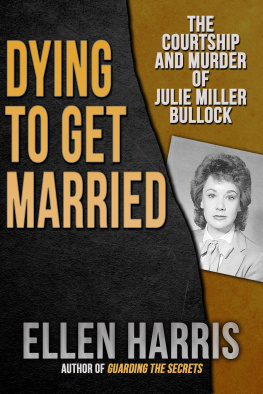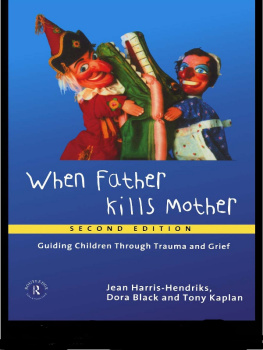All rights reserved, including the right to reproduce this book or portions thereof in any form whatsoever.
For information address Pocket Books, 1230 Avenue of the Americas, New York, NY 10020
POCKET and colophon are registered trademarks of Simon & Schuster, Inc.
Lines from Put the Blame on Mame by Doris Fisher and Allan Roberts, appearing on Chapter 3, are used by permission of Doris Fisher Music Corp.
Society must go on, I suppose, and society can only exist if the normal, if the virtuous, and slightly deceitful flourish, and if the passionate, the headstrong, and the too-truthful are condemned to suicide and madness.
Authors Note
I SAW HER FIRST on TV, stepping out of a police car, and thoughtshe reminds me of me. Same hairdo, same shoes, even the same college class. Headmistress of a select girls school, she had just been arrested for murder. The dead man, Dr. Herman Tarnower, was someone I used to know. Later, when I began to dig back into her life story, and his, striking similarities turned up between her life and my own. Her flourishing professional career has been devoted almost entirely to private-school education, and mine to journalism, but our chronologies are roughly parallel as to dates of birth, marriage, motherhood, divorce, and the experience of becoming what the Bureau of Internal Revenue calls a female head of household. Most important, we are women of the same era: the last generation of Americans brought up to believe that nice girls get married. The love affair between Jean Harris and Herman Tarnower had gone on for fourteen years.
After Mrs. Harris had been sent to prison, and while I was still doing research on the case, something else happened which set that tragic event into harsh perspective. A lifetime convict named Jack Henry Abbott was released from prison on parole and, within days, he had stabbed a young stranger in the heart. When Abbott was recaptured and brought to trial, in the same state which had convicted Jean Harris, he said his lifetime behind bars had rendered him extremely emotionally disturbed, and he threw himself on the mercy of the jury. They responded with sufficient compassion to convict him of manslaughter, not murder. Harris, on the other hand, had been too principled to say she was extremely emotionally disturbedor perhaps too disturbedand too prideful to beg for mercy. Harris had insisted on telling the truth, pinning all her faith on her civics class conception of the American system of justice. She had, after all, devoted her professional lifetime to instructing children in the workings of this very system, and its superiority to all others.
Seen side by side, the two cases reveal our criminal justice system to be so imperfect a machine, so terrifyingly random as it wheezes and clatters along, that it metes out to Jack Abbott the same punishment it awards Jean Harris. The hardened criminal-multiple killer and the distraught boarding-school headmistress occupy different institutions, but they are serving identical prison terms: fifteen years-to-life, without possibility of parole for fifteen years.
But I had not set out to investigate the injustice of the justice machine, nor the pliability of the system in the hands of the artful criminal. I was interested in a single individual, Jean Harris, someone who had always seemed to embody the highest ideals of society, not the lowest. Three times, at three schools, the headmistress had been handpicked over other candidates as figurehead and exemplar to the next generation, three times set up as a model of womanhood to some of the fairest, most privileged daughters in the land. What qualities had raised her up? What held her together? What brought her down? And afterward: why was this passionate, headstrong, and too-truthful woman apparently so incapable of utilizing the criminal justice system as it was designed to be usedto assure an accused person the benefit of the doubt?
That I would attempt to write her story was inevitable from the first moment I saw her on TV. The following day I drove to her lawyers office to announce my intentions, and when I got home I commenced a gentle postal bombardment of his client with letters and writings I had published over the years. Less than two months after Dr. Tarnowers death, my phone rang. You remind me of me, she said.
This was the first of scores of conversations Jean Harris and I have held in the many months before, during, and after her murder trial. In this time we have come to realize that we are not nearly so alike as either of us at first had thought, and we have become friends. Nonetheless, what follows is in no sense of the term an authorized biography of Jean Harris. It is my view of the story only. I hope that someday she will be permitted to publish her own. In the period during which our friendship has developed, we have never made agreements of any nature. I have of course told her of my intention to write about her, but I have neither formally nor informally sought her permission to do so. She has never asked my permission to read any part of my work-in-progress, nor of the final manuscript, and she has not done so. One day when we were talking in the prison visiting room another of her visitors, a woman more worldly than the former headmistress, said, Jean, arent you going to read this book before its published?
No. And I may not read it afterwards either, she replied. But its all right. I trust her. No writer could receive a more precious gift, and I can only pray that her trust will sustain under the unforeseeable impact of the present volume.
This book is not offered as an apologia pro Jean Harris, but as an independent view of the case, the fruit of interviews, observations, and researches engaged in continually over the past two and a half years. In that time, I have attended every day of all the public legal proceedings involving Jean Harris, and have talked to hundreds of people who knew her and Herman Tarnowerold friends, new friends, professional colleagues, relatives, neighbors, servants, students, teachers, parents, doctors, lawyers, judges, police officers, and members of the District Attorneys office. Some of these people spoke to me entirely on the record, some entirely off, some insisted on the right to approve their quotes, some authorized the use of their quotes but not their names. When, as frequently happened, I was offered widely divergent versions of the same events, my solution was to seek out third-party witnesses where possible; sometimes to use both versions of the story, sometimes to use neither; and in general to rely on nearly forty years professional experience in the familiar journalistic drudgery and occasional thrill of sorting wheat from chaff.














 POCKET BOOKS, a division of Simon & Schuster, Inc.
POCKET BOOKS, a division of Simon & Schuster, Inc.